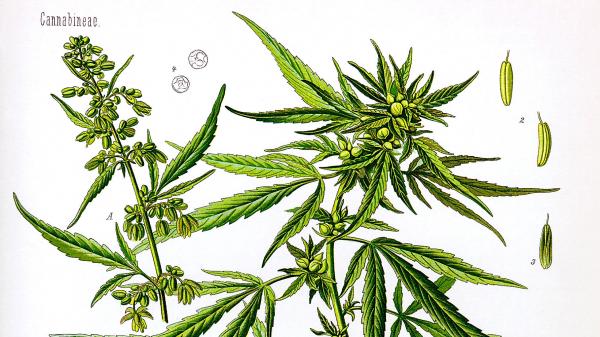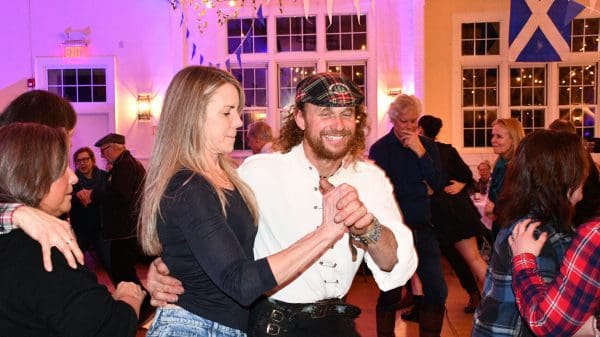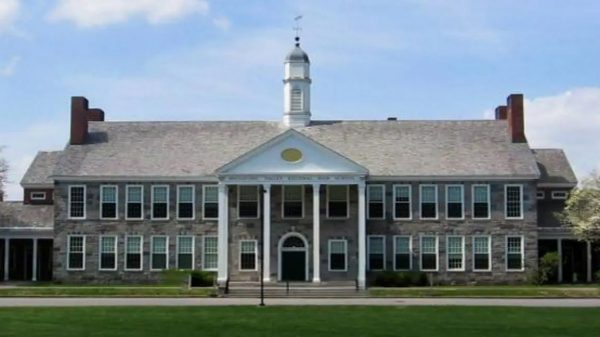KENT—Dr. Henry Kissinger, 100, one of the most controversial figures of the latter half of the 20th century, died at his Kent home Wednesday, according to a statement from his consulting firm, Kissinger Associates.
The statement said, “He will be interred at a private family service. At a later date there will be a memorial service in New York City.”
He is survived by his wife, Nancy (Maginnes) Kissinger, two children, David and Elizabeth, and five grandchildren.
Kissinger had made a home in Kent since the early 1980s, when he bought the Henderson Blueberry Farm on Henderson Road. He was active in diplomatic circles until the end of his long life, and it was there he met with Chinese Ambassador to the United States Xie Feng on May 26 of this year, the day before his 100th birthday. The pair reportedly had an in-depth exchange of views on China-U.S. relations and international and regional issues of common interest.
In July, Kissinger traveled to China where he met President Xi Jimping and other Chinese leaders in Beijing.
Despite his larger-than-life impact on the world stage, Kissinger engaged with his fellow townspeople. He supported the Kent Volunteer Fire Department and attended its carnival every year that he was able, where he and his wife would stop for a grinder at the Rod and Gun Club booth before going on to the Bingo tent to play with family, employees, and friends such as the late designer Oskar De La Renta.
A good friend of Dolph and Audrey Traymon, he would often broadcast interviews from the Traymon’s Victorian house on Main Street and dine at their restaurant, the Fife ’n Drum.
Early in his Kent residency, he even used his vaunted diplomatic skills to smooth over a local kerfuffle over blueberries growing on his property. There was an outcry from the community about the destruction of the blueberry bushes that had a been a staple of Pick-Your-Own in Kent for years. Kissinger donated the blueberry bushes to Kent School, and they were planted at the Girls school campus atop Skiff Mountain (now Marvelwood School). Kent residents have had free access to the bushes ever since.
Earlier in the 2000s, he participated in a program on Russia presented by the Kent Informal Club and the Kent Memorial Library.
Ken Cooper, then president of the library board, knew the Kissingers well. “There is so much to say [about him],” Cooper said. “Those of us in Kent saw a different side of Dr. Kissinger as a regular, normal presence in our community. He was a regular guy and very gracious to everyone. He very supportive of the land trust, the library and the fire department. He loved nature and pets—his dog ate supper at the table with him every night.
“When we started the lecture series,” Cooper continued, “he was instrumental in bringing major international figures to speak in Kent. One of striking things I remember is that we were very honored when [Civil Rights leader] John Lewis come to speak. We had a dinner for him the evening before, and we invited Dr. Kissinger and Nancy to attend. Dr. Kissinger stood up in the middle of the dinner and raise his glass in a toast to John Lewis. He said, ‘You are a Democrat, and I am a Republican, but I want you to know that we are deeply indebted as a country, and I am indebted as a citizen, for your contribution to civil rights in our country.’ I thought that was a very magnanimous thing to do.”
Cooper noted that Kissinger and his wife were a team. “Nancy and Henry were a team, they would finish each other’s sentences,” he said. “They were very affectionate, very fond and respectful of each other. And they made sure they shared credit for anything they did.”
But his time in Kent was just a homely backdrop to his career as what has been termed “the most powerful secretary of state of the post-war era.” His complicated legacy still resonates in this nation’s relations with China, Russia and the Middle East. Kissinger engineered opening relations between China and the United States during the Nixon administration, negotiated America’s withdrawal from Vietnam and a détente with the Soviet Union at the height of the Cold War.
In the 1970s, Kissinger, who described power as an aphrodisiac, was second in power only to President Richard M. Nixon, having joined the Nixon White House in January 1969 as national security adviser and later serving as secretary of state. When Nixon resigned, he stayed on under President Gerald Ford.
He advised 12 presidents, from John F. Kennedy to Joe Biden. His cunning and a ruthlessly practical approach to international relations caused him to be heralded by some and reviled by others. His secret negotiations with China led to Nixon’s most famous foreign policy achievement and was designed to isolate the Soviet Union. It set the stage for today’s complex and sometimes fraught relationship between the two dominant economies in the world.
He was the only American to deal with every Chinese leader from Mao to Xi Jinping.
His involvement in the United States’ role in Vietnam was deeply divisive. Reportedly never persuaded the United States could win the guerilla war, he nevertheless guided the Nixon Administration in some of its most controversial moves. He was accused of breaking international law by authorizing the secret carpet-bombing of Cambodia in 1969-’70, an action against a neutral nation designed to root out the pro-Communist Vietcong forces operating across the border. The indiscriminate bombing killed 50,000 civilians.
He was known to quip, “The illegal we do immediately. The unconstitutional takes a little longer.”
He negotiated the Paris peace accords that ended American involvement in Vietnam, calling it “peace with honor,” and was awarded the 1973 Noble Peace Prize for his role, but critics argued he could have made the same deal years earlier, saving thousands of lives.
He was the architect of the Nixon administration’s efforts to topple Chile’s democratically elected Socialist president, Salvador Allende. And when Pakistan’s U.S.-backed military was waging a genocidal war in East Pakistan [now Bangladesh] in 1971, he and Nixon ignored pleas to stop the massacre and approved weapons shipments to Pakistan, whose president served as a conduit for Kissinger’s courtship of China. At least 300,000 people were killed in East Pakistan and 10 million refugees were driven into India.
Once an advocate of limited nuclear war, he later reversed his opinion, conceding it might not be possible to contain escalation. By the end of his life, he had embraced the effort to gradually eliminate all nuclear weapons and, at age 95, began to warn against weapons controlled by Artificial Intelligence.
Kissinger was born Heinz Alfred Kissinger to Louis and Paula (Stern) of Fürth, Bavaria, on May 27, 1923. His father lost his job in 1935 when the Nuremberg Laws forbade Jews from teaching in state schools. For three years Paula Kissinger sought a way to get the family out of the country and, in 1938, the family was allowed to leave Germany when Kissinger was 15. When war broke out, at least 13 of the family’s close relatives died in concentration camps.
The Kissingers settled in Washington Heights, then a haven for German-Jewish refugees. His father got a job as a bookkeeper but never fully adjusted to his adopted land. Kissinger dropped the Germanic “Heinz” in high school and adopted the name Henry. In 1940, he enrolled in City College, excelling in his classes, before being drafted by the Army in 1943.
The Army and the war were transformative for the young soldier. He heard a talk about the “moral and political stakes of the war,” and it reportedly changed the direction of his life. He served in Germany as a translator and, in the last months of the war interrogated captured Gestapo officers and read their mail. He received a Bronze Star for his participation in efforts to uncover sabotage campaigns against America forces.
After the war, Kissinger remained in Germany as a civilian instructor teaching American officers how to uncover former Nazi officers, work that allowed him to crisscross the country. He was alarmed by what he saw as Communist subversion of Germany.
He returned to the United States in 1947 to resume his college education, entering Harvard as a sophomore. He remained at that august institution for two decades, finding fame as a professor before the divisiveness of the Vietnam War drove a wedge so sharply between him and his colleagues he vowed never to return.
Kissinger graduated, summa cum laude, in 1950, and with the Korean War underway, accepted consulting work for the government that took him to Japan and South Korea. He returned to Harvard to earn a Ph.D. and he and political science Professor William Elliott started the Harvard International Seminar, a network that produced a number of leaders in world affairs.
Mr. Kissinger received his Ph.D. in 1954 and Kissinger joined an elite study group at the Council on Foreign Relations, whose mission was to study the impact of nuclear weapons on foreign policy. It was there that he produced his first book, a best seller entitled “Nuclear Weapons and Foreign Policy.”
In it he argued that if an American president is paralyzed by fear of escalation the concept of nuclear deterrence will fail. Many scholars panned the book, believing Kissinger had overestimated the nation’s ability to keep limited war limited, to this day scholars refer to it, looking for lessons to apply to cyberwarfare.
The success of the book led Kissinger back to Harvard as a lecturer. His classes were popular, but he was soon immersed on academic politics. He received tenure in 1959, announced by his old champion, Dean MacGeorge Bundy. By 1961 Bundy was national security adviser to John F. Kennedy, but Kissinger was unsuccessful in following him to the White House.
At this time, Kissinger renewed his friendship with Nelson Rockefeller, who then appeared to be a good presidential prospect for 1968. He also met a junior Rockefeller aid, Nancy Maginnes, whom he married years later. Kissinger had earlier married Anneliese “Ann” Fleischer in 1949. They had two children, Elizabeth and David, and divorced in 1964.
Kissinger wrote speeches for Rockefeller denouncing his Republican rival, Richard Nixon. But when Nixon won the nomination, Kissinger accepted an invitation to serve on Nixon’s foreign policy board. He was said to have used his own contacts to funnel information about Lyndon Baines Johnson’s Paris negotiations with the Vietnamese back to the Nixon campaign. Whether he did or did not, Kissinger was on Nixon’s radar and after the election he was appointed national security adviser. Nixon directed Kissinger to run national security affairs from the White House, cutting out the State Department and Nixon’s own secretary of state, William P. Rogers. Kissinger consolidated his power, meeting often with Nixon, often without staff members present, laying the groundwork for his long and convoluted history as one of America’s premier architects of foreign policy.



































